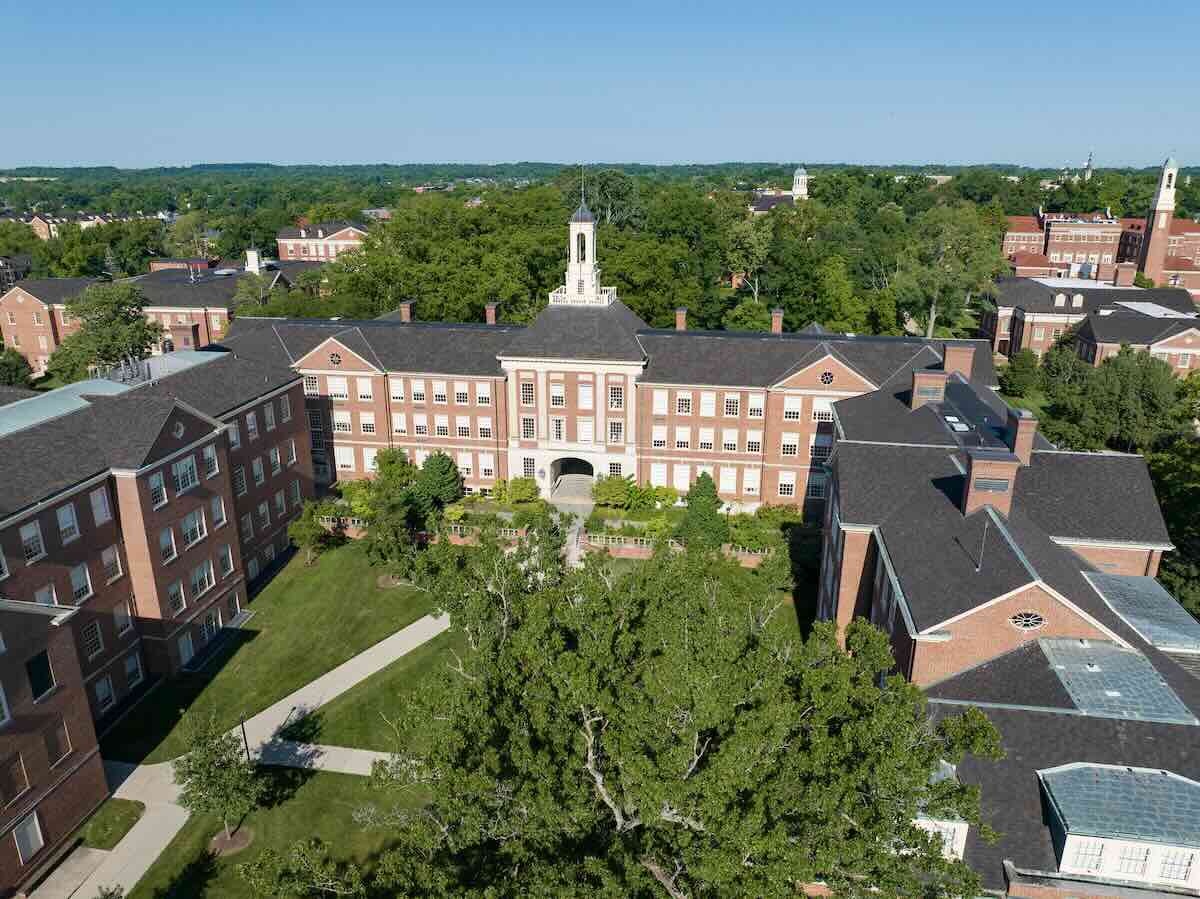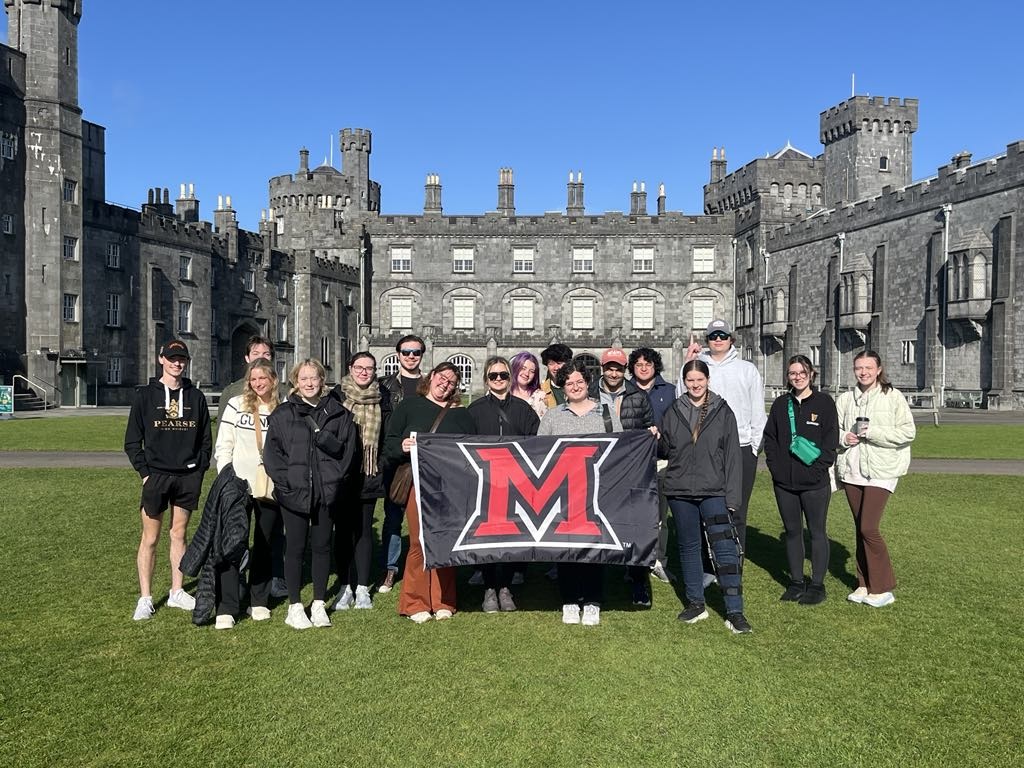
Graduate Program in Ecology
The Graduate Program in Ecology is a multidisciplinary, interdepartmental program of study and research leading to M.S. (with a thesis required) and Ph.D. degrees. This program brings together faculty and students, with interests in ecology, from various departments. Ecology is by nature an interdisciplinary subject that crosses departmental boundaries. The program provides students with educational experiences that reflect this interdepartmental nature, and facilitates interdepartmental collaborations and interactions among students and faculty. Assistantships are provided by the home department.
Participating Host Departments
The Graduate Program in Ecology brings together faculty and students, with interests in ecology, from various departments. Ecology is by nature an interdisciplinary subject that crosses departmental boundaries. The program provides students with educational experiences that reflect this interdepartmental nature, and facilitates interdepartmental collaborations and interactions among students and faculty. Miami Master's and Ph.D. students can also earn a Certificate in Ecology, through the interdepartmental Graduate Program in Ecology.
Academics
Students in the program receive their degrees from a home department but satisfy the requirements of the Graduate Program in Ecology in lieu of home department requirements. Students also earn a Certificate in Ecology. Miami also offers an interdisciplinary Ph.D. program in Ecology, Evolution, and Environmental Biology.
Students interested in this program should review the research interests of the faculty associates. Any faculty associate in a participating department can serve as the thesis/dissertation advisor.
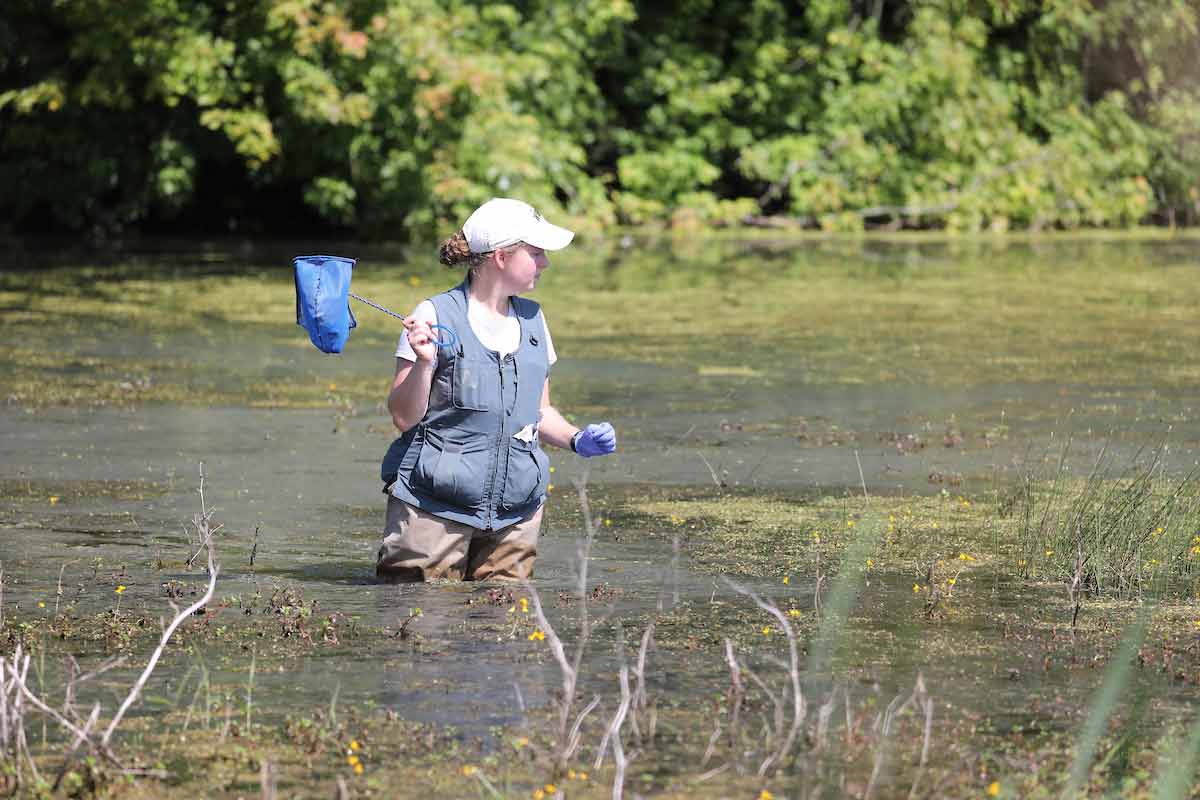
Students who fulfill all the requirements of this program will receive a Certificate in Ecology, in addition to a graduate degree from their home department.
A. Formal Course Requirements
Students must earn 12 credit hours of formal coursework, including:
- BIO 671, or equivalent course in population/community ecology
- BIO 672, or equivalent course in ecosystem ecology
- one graduate course in the student's home department, not including those used to satisfy requirements 1 or 2 above
- one course in statistics or mathematical modeling
A formal plan of study, including courses to be taken to satisfy requirements 1-4, must be approved by the student's committee.
B. Seminars
Students must take at least two semesters of graduate seminars in ecology.
C. Professional Workshop(s)/Seminar(s)
Students must take any workshop, seminar in teaching, or other professional training required of new students by the home department.
D. Thesis
Students must complete a thesis. The thesis committee must include at least three faculty members. Two committee members must be from the student's home department and two must be Ecology Program Faculty Affiliates. The Committee Chair (Advisor) must be a member or associate of the home department.
E. Diagnostic Exams
Students must complete either a comprehensive exam, or a thesis proposal defense. The type of exam will be determined by the student's home department.
F. Other Requirements
In all other matters, such as evaluation of teaching performance, service on departmental committees, etc., students must follow the procedures set forth by the student's home department.
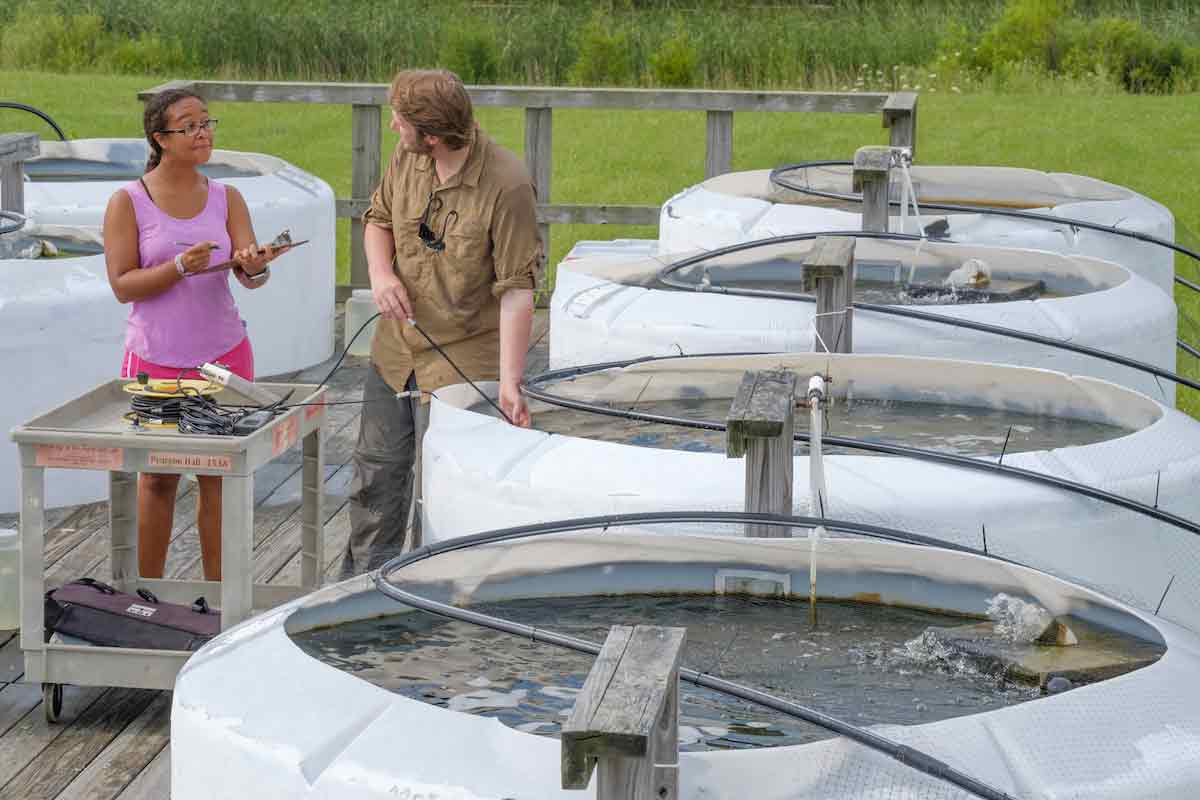
Students who fulfill all the requirements of this program will receive a Certificate in Ecology, in addition to a graduate degree from their home department.
A. Formal Course Requirements
Students must earn 18 credit hours of formal coursework, including:
- BIO 671, or equivalent course in population/community ecology
- BIO 672, or equivalent course in ecosystem ecology
- one graduate course in the student's home department, not including those used to satisfy requirements 1 or 2 above
- one course in statistics or mathematical modeling
A formal plan of study, including courses to be taken to satisfy requirements 1-4, must be approved by the student's committee. Equivalent courses taken in another graduate program may satisfy course requirements, at the discretion of the student's thesis/dissertation committee. In the event that a student has not yet formed a committee, s/he can seek approval from the Ecology Program Executive Committee.
B. Seminars
Students must take at least 4 semesters of graduate seminars in ecology.
C. Professional Workshop(s)/Seminar(s)
Students must take any workshop, seminar in teaching, or other professional training required of new students by the home department.
D. Dissertation
Students must complete a dissertation. The dissertation committee must include at least 5 faculty members. Three committee members must be from the student's home department, and three must be Ecology Program Faculty Associates. The Committee Chair (Advisor) must be a member or associate of the home department.
E. Comprehensive Exams
Students must pass a comprehensive written and oral exam, given by the student's dissertation committee.
F. Other Requirements
In all other matters, such as evaluation of teaching performance, service on departmental committees, etc., students must follow the procedures set forth by the student's home department.
Research Facilities and Centers
Research is at the center of both the M.S. and Ph.D. programs. Graduate students in the program pursue questions at all levels of ecological organization including: behavioral ecology, population ecology, community ecology, landscape ecology, and ecosystem ecology. In addition, students take core ecology courses and seminars and attend short workshops designed to improve teaching and professional skills. Students in the Graduate Program in Ecology have access to state-of-the-art research equipment and facilities within the participating departments, as well as many shared facilities, including:
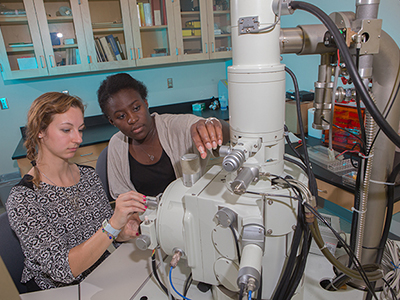
Center for Advanced Microscopy and Imaging
The Center for Advanced Microscopy and Imaging (CAMI) is an all-university research, teaching, and service facility located in Upham Hall on Miami University's main campus, in Oxford, Ohio. CAMI serves the microscopy needs of both the biological and materials communities. CAMI is available for use without charge to the Miami University community.

Geospatial Analysis Center
The Geospatial Analysis Center (GAC) serves as the hub of geospatial research and activities in support of education, research, and outreach activities at Miami University. Housed in the Department of Geography, the GAC supports individual students, faculty, and staff with geospatial data and analysis needs. It is the access point for licensed geospatial software and geographic information systems (GIS) data.
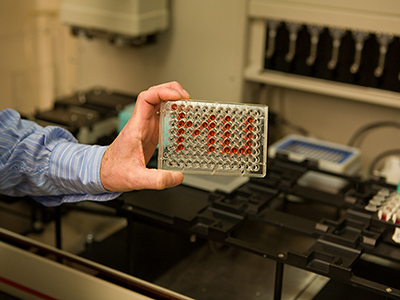
Bioinformatics and Functional Genomics
The Center for Bioinformatics and Functional Genomics is a state-of-the-art research and training facility available for all members of Miami University, with the goal of advancing research opportunities in all fields that intersect in molecular biology and big data bioinformatics. Its equipment, which includes an Illumina MiSeq, ONT minION, two Applied Biosystems capillary DNA sequencers, a BiomekFX robotic liquid handling system, qPCR thermocyclers, ancillary equipment to prepare NGS libraries, and several high-capacity Linux computer workstations for bioinformatic and other big data analyses.
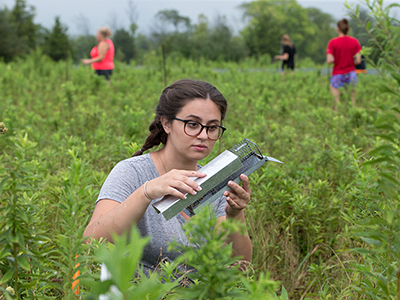
Center for Animal Behavior
Miami University's Center for Animal Behavior (CAB) provides opportunities to study animal behavior at many levels. Whether you investigate individuals within a population or study behavior at the neuronal level, your work at the CAB may help us better understand how animal and human behavior is generated and how it has been maintained over time.

Miami University Natural Areas
Miami's Natural Areas, within walking distance of the Oxford campus, consist of over 1000 acres and 15 miles of trails. Habitats available for research and teaching include old-growth and secondary forest, old fields, ponds and streams.
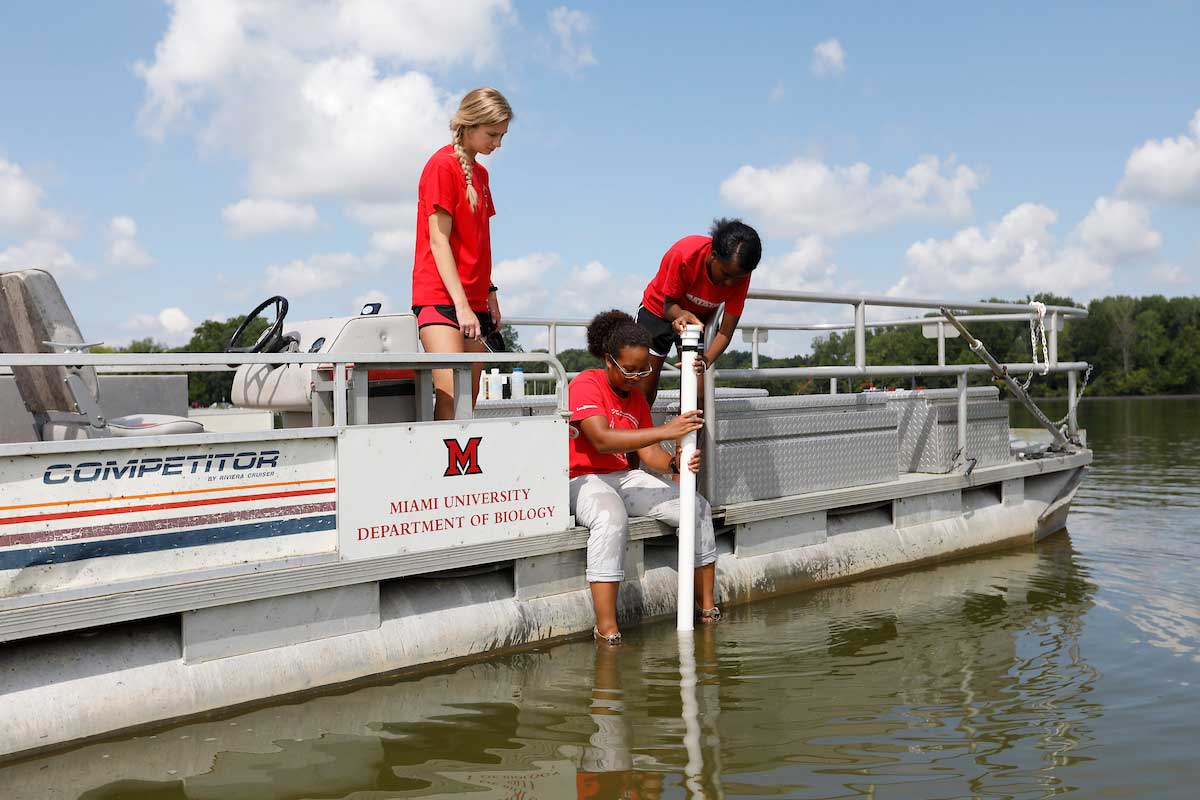
Hueston Woods State Park
Hueston Woods State Park, located 5 miles north of Oxford, comprises approximately 1200 hectares (2950 acres). Hueston Woods State Nature Preserve consists of over 800 hectares (200 acres) representing the beech-maple forest that once covered much of Ohio. Acton Lake is a 250-hectare reservoir situated in the heart of Hueston Woods State Park. Acton Lake is part of an Ohio-wide system of reservoirs that Miami ecologists are investigating to understand the effects of agricultural practices on the structure and functioning of reservoirs. Long-term, up-to-date data sets are key to our understanding and they have installed a buoy at Acton Lake now that provides real-time data on weather variables (e.g., air temperature, wind, sunlight) and limnological variables (e.g., water temperature, pH, dissolved oxygen, chlorophyll).
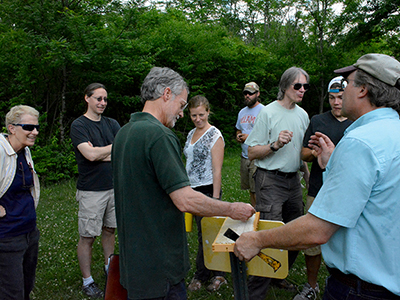
Ecology Research Center
The Ecology Research Center (ERC) is the focal point for ecological field research at Miami University and provides a venue for educational opportunities for middle, high school, and university students. This 69-hectare field station contains a diversity of field sites and facilities that support both aquatic and terrestrial research.
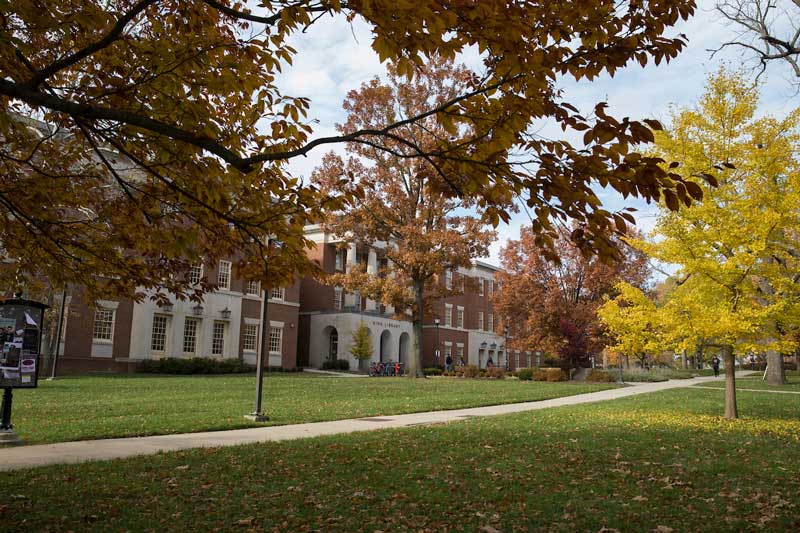
Miami University Libraries
The Miami University Libraries contain an extensive collection of information, including books, maps, sound recordings, journals, magazines, newspapers, movies, videos, DVDs, and microfilm. The Brill Science Library contains materials related to the sciences, mathematics, and technology.
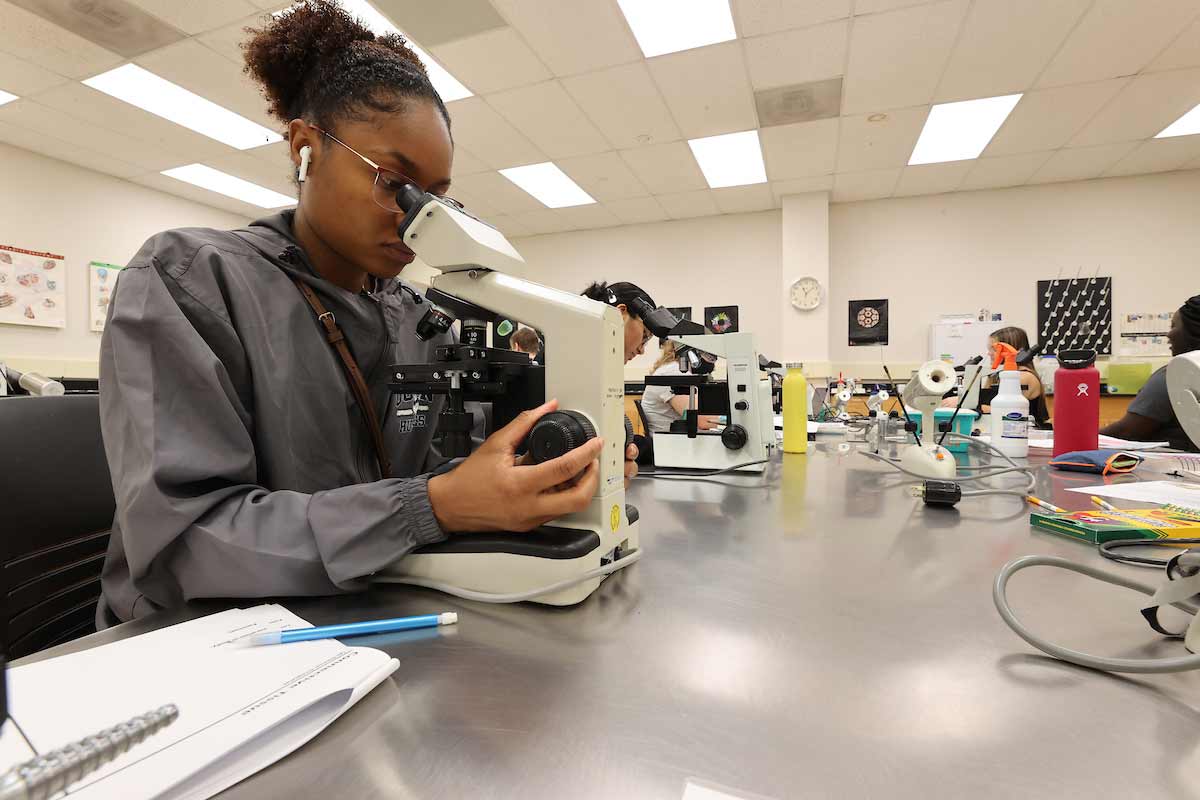
Biology Research Facilities
The Department of Biology's facilities include an animal care facility, greenhouses, 2 large aquatic animal rooms for maintaining marine and freshwater organisms, a plant growth chamber facility, living stream tank systems, the largest herbarium in the state of Ohio, environmental chambers, flow-through respirometers, refrigerated water baths, and a Porta-Cool Porta-Temp System for maintaining animals under various temperature conditions, as well as cloning, tissue culture, microcomputer room, and other preparation and analysis equipment.

Geology Research Facilities
The Department of Geology & Environmental Earth Science's facilities include numerous laboratories (e.g. geomicrobiology, hydrogeology, elemental geochemistry, radiogenic isotopes, stable isotopes, x-ray diffractometry), the Limper Geology Museum, 20-channel DC plasma spectrometer, atomic force/scanning tunneling microscope, electrophoretic mobility analyzer, HPLC ion chromatograph, and thermal ionization mass spectrometers.
